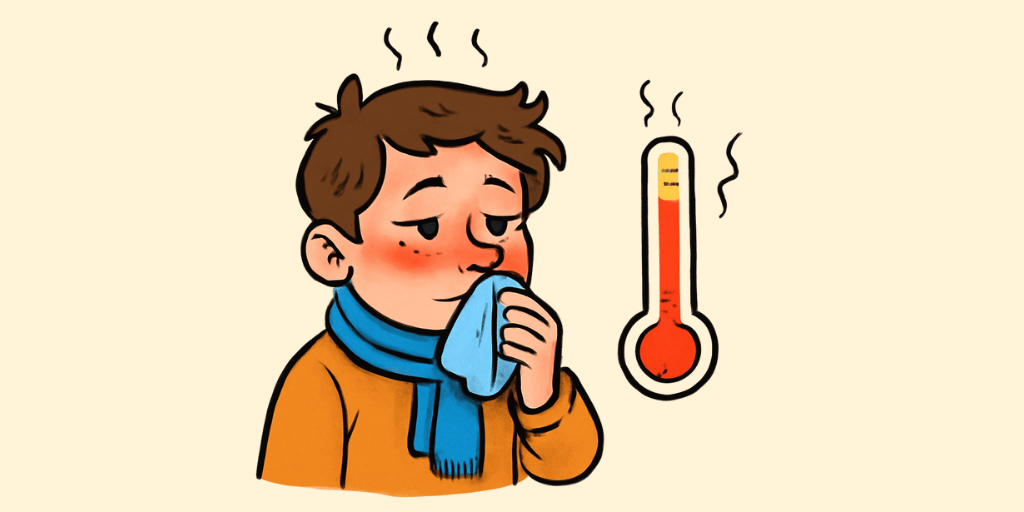Ayurvedic Name: Dhatugat Jwara
Description:
Dhatugat Jwara occurs when fever penetrates deeper Dhatus (tissues) like Rakta (blood), Mamsa (muscle), or Majja (bone marrow), which leads to severe symptoms such as high fever, body pain, weakness, and chronic inflammation. It signifies a more profound disease state requiring intensive detoxification and nourishment to restore tissue balance.
Signs & Symptoms:
- Rasa Dhatugata Jwara (Plasma-Level Fever): Swelling and heat in the skin, fatigue, and malaise, often with nausea and loss of taste.
- Rakta Dhatugata Jwara (Blood-Level Fever): Fever with symptoms like redness, heat, and burning sensations in the body.
- Mamsa Dhatugata Jwara (Muscle-Level Fever): Painful swelling in the muscles, fatigue, and pain that worsens with movement.
- Asthi Dhatugata Jwara (Bone-Level Fever): Severe bone pain and swelling, often with systemic fatigue.
- Majja Dhatugata Jwara (Bone Marrow-Level Fever): Tremors, dizziness, and burning sensations inside the body.
- Shukra Dhatugata Jwara (Reproductive Tissue-Level Fever): Depletion in strength, excessive fatigue, and emotional distress.
Diagnosis:
Persistent Fever with Elevated ESR/CRP
Risk Factors:
- Dietary Factors
Consuming foods that disturb the body’s digestive fire (Agni), leading to Ama formation and subsequent tissue-level fever.
Excessive intake of processed or overly rich foods that burden the body’s detoxification systems. - Lifestyle Factors
Lack of physical activity and improper rest leading to sluggish metabolism and accumulation of toxins in the body.
Exposure to environmental toxins or pollution, leading to tissue inflammation and fever. - Medical Conditions
Chronic diseases like liver disease, rheumatoid arthritis, or malignancies that cause inflammation at the tissue level.
Autoimmune diseases, where the body attacks its own tissues, can lead to persistent fever.
Complications:
- Tissue Necrosis (Sparsha Kshaya): Long-term inflammation in tissues due to fever can lead to tissue death or necrosis, particularly in the skin or internal organs.
- Organ Dysfunction (Karma-Vikriti): Chronic tissue fever can cause dysfunction in organs such as the liver, kidney, or heart due to prolonged inflammation.
Chronic Fatigue (Dourbalya) – Persistent tissue inflammation leads to exhaustion, weakness, and prolonged fatigue. - Blood Clotting Disorders (Raktavaha Dushana): Tissue-level inflammation can cause problems with blood clotting, leading to increased risk of thrombosis.
- Reduced Immunity (Pratirodh Kshaya): Continuous inflammation in tissues reduces the body’s ability to fight off infections, making it more vulnerable to further illnesses.
Epidemeology:
Common in individuals with chronic inflammatory or autoimmune diseases, such as rheumatoid arthritis or lupus.
Affects both men and women, though women between the ages of 30 and 50 are at a higher risk due to autoimmune diseases.
Incidence is higher in individuals with compromised immune systems or those who are exposed to long-term infections.
Approximately 1-2% of the population globally is affected by chronic inflammatory disorders, leading to tissue-level fever.

